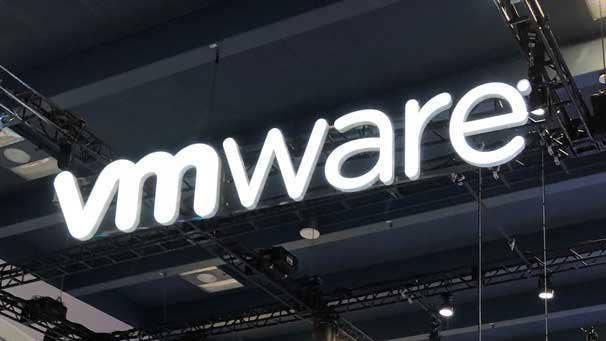Dell’s 5 Big Earnings Takeaways: Supply Chain Woes, Price Changes And Record Sales
From supply chain woes and potential pricing increases ahead to its record-breaking $101 billion fiscal year 2022, CRN breaks down the five biggest takeaways from Dell Technologies’ recent fourth-quarter financial earnings report.

Dell’s Potential Pricing Increases, Supply Chain Issues And $101 Billion Year
Dell Technologies just reported a record-breaking year, topping $100 billion in annual revenue for the first time in the company’s long history.
However, the Round Rock, Texas-based PC and infrastructure giant saw its stock immediately fall 10 percent after reporting its fourth-quarter earnings results last week.
As Dell unveiled a 16 percent increase in sales during its fourth quarter to $28 billion, the company also reported several issues related to the supply chain and increased freight costs that could hinder growth in 2023. These issues, which are affecting many IT companies across the globe, are leading to product price changes.
“As costs go up, it’s being transferred into price—whether that’s commercial PCs, whether that’s the premium consumer side of our business, we’re seeing the same thing broadly across the server base and the same is true in our storage base. So that cost is being transferred into price as efficiently as we can,” said Dell Vice Chairman and Co-COO Jeff Clarke during the tech giant’s earnings call last week.
On the upside, Dell reported record-breaking sales for its entire fiscal year 2022, which ended earlier this month. The company generated $101.2 billion in revenue for the year, representing an increase of 17 percent year over year. Dell’s net income for the entire year reached $4.9 billion, up 120 percent year over year.
From Dell’s supply chain woes to VMware pricing processes ahead, CRN breaks down the five most important takeaways from Dell’s fourth fiscal quarter financial earnings report that channel partners, investors and customers need to know.

Supply Chain Woes: ‘Impact Across Client Systems, Servers And Storage’
Like many IT companies in 2022, Dell is dealing with component shortage issues even as it reported a 16 percent sales increase during its fourth quarter.
“We are still experiencing shortages of integrated circuits across a wide range of devices, including network controllers and microcontrollers, that go into our products and solutions,” said Clarke. “The result: We are seeing an impact across client systems, servers and storage.”
Dell executives said the company experienced a record backlog in its Infrastructure Solutions Group in the fourth quarter as a result of a shortage of components, and that backlog will likely remain high through the first half of this year. Dell’s ISG consists of its market-leading storage, server and hyperconverged infrastructure portfolio.
Other than supply chain issues, freight costs have continued to rise due to increased logistics rates, a higher mix of air shipments due to ocean network congestion, and an increase in part expedites, according to Dell.
“As we head into Q1, we do expect component costs to improve with modest deflation while freight costs remain elevated,” Clarke said. “Our supply chain speed, agility and flexibility has enabled us to meet customer needs in this environment, though challenges remain. And our supply chain continues to be a durable competitive advantage as we navigate the unprecedented supply uncertainty.”

Dell ‘Adjusting Prices’ On Products ‘As Appropriate’
When asked about how Dell is managing price increases with its supply chain constraints, Dell CFO Tom Sweet said the company has been adjusting prices as appropriate as component costs are rising, particularly in the semiconductor space.
“We continue to take pricing actions to manage the impact of commodity and logistics cost variability,” said Sweet.
“Our perspective is to adjust prices as appropriate, we’re always mindful of the market dynamic around elasticity,” he said. “But we’re also in an inflationary environment and we see that across multiple industries. It’s appropriate that we adjust pricing and make sure that we’re getting appropriate value for our solutions.”
As costs go up, it’s being transferred into increased prices, Clarke said.
“As costs go up, it’s being transferred into price—whether that’s commercial PCs, whether that’s the premium consumer side of our business, we’re seeing the same thing broadly across the server base and the same is true in our storage base. So that cost is being transferred into price as efficiently as we can,” said Clarke. “We’re responding as fast as we can. And the higher levels of backlog, it’s less efficient at capturing it.”
An increased backlog because of supply constraints has not had a major impact on Dell’s profit as price increases have to flow back through the backlog. As component costs decline slightly in the first fiscal quarter, it will be offset by flat to probably slightly increasing logistics costs related to moving the components to where they are needed.

‘One For The Record Books’: Dell Surpasses $100 Billion In Revenue
For the first time in its long history, Dell generated over $100 billion of revenue in a single year.
Dell reported just over $101 billion in total sales for fiscal year 2022—which ran from January 2021 to January 2022—representing an increase of 17 percent year over year compared with $86.6 billion in fiscal year 2021.
“Fiscal year 2022 was indeed one for the record books,” said Chuck Whitten, Dell’s co-COO. “We’re in a privileged strategic position. We ended the year with great momentum, and we’re incredibly optimistic about fiscal year 2023 and beyond.”
Dell also generated record operating income of $7.8 billion, an increase of 12 percent compared with fiscal year 2021.
The massive growth was mainly due to Dell’s huge sales growth in its Client Solutions Group, which delivered record revenue of $61.5 billion, a 27 percent increase annually. Dell’s CSG business includes PCs, monitors, laptops, notebooks and other client systems.

‘Work To Do’ On VMware Pricing Following Spin-Off
Dell spun off its 81 percent majority stake in VMware to Dell Technologies shareholders in late 2021, making VMware an independent company for the first time since 2004.
However, the two companies have signed a five-year commercial agreement aimed at keeping their strong joint technology engineering road map and go-to-market sales synergies intact. Although VMware wasn’t top of mind during Dell’s financial earning report last week, Dell’s CFO said there’s more work to be done in terms of VMware pricing.
“We’ve taken the VMware revenue, the Dell contribution of VMware revenue, up to somewhere roughly in the 30 percent [to] mid-30 percent range in terms of VMware total contribution,” said Sweet. “As we now have separated … we do have work to do on pricing and on working our way through the five years of those VMware relationships and contracts with our customers, and we are focused on resetting pricing and process over time.”
Sweet said it will be a “24-month journey” to get the pricing, operational costs and processes settled.
“I view it as an opportunity. We’ve got opportunity to improve that and drive better profitability there over time, but it will—it’s going to take some work there,” said Sweet.
Dell also said it repaid $10.6 billion of debt funded primarily with $9.3 billion in VMware dividend proceeds stemming from Dell’s spin-off of VMware.

Dell Shares Fell 10 Percent After Earnings Report: Why The Drop?
Dell’s shares fell 10 percent following its fourth-quarter financial earnings report, dropping from $55.78 on Feb. 24 to $50.16 per share on Feb. 25.
Although fourth-quarter revenue increased 16 percent to $28 billion, Dell reported a net income loss from continuing operations of $29 million for its fourth quarter.
Another reason why Dell’s stock likely fell is that Dell’s fourth-quarter earnings of $1.72 per share failed to meet Wall Street’s expectations of $1.95 per share.
The final reason for the stock drop was likely due to Dell unveiling its supply chain shortcomings and backlogs, specifically dealing with the semiconductor industry and its red-hot PC business.
Dell’s share price has climbed slightly over the past several days to $51.39 per share as of Monday morning.
Overall, Dell executives said they were pleased with the company’s performance and strategy in fiscal year 2022.
“In closing, we delivered an extraordinary year with record revenue, operating income, EPS and cash flow,” said Dell’s Sweet. “We delivered significant shareholder value through the spin-off of VMware, the sale of Boomi and disciplined and consistent debt paydown, resulting in an investment-grade rating. … We remain focused on executing our strategy to consolidate and modernize our core and build new growth engines that enable our customers’ multi-cloud future while delivering revenue and EPS growth with strong free cash flow to our shareholders over time.”